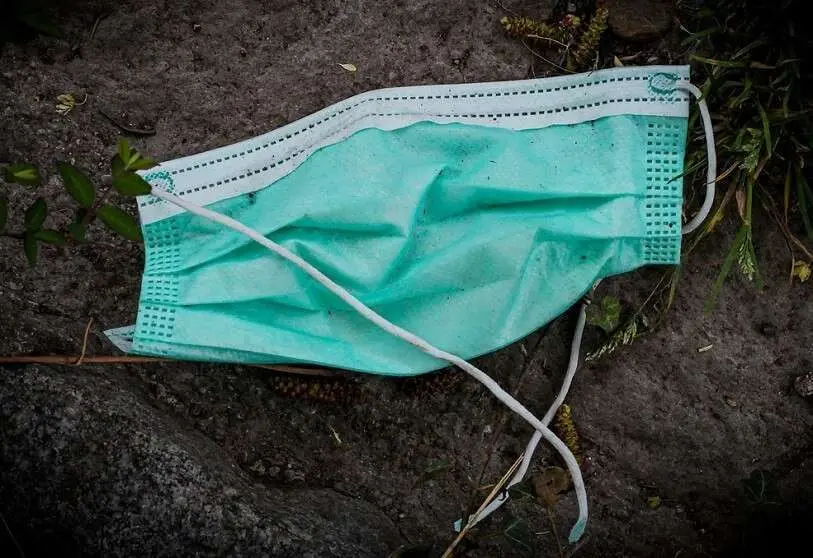Pandemic: the return of plastic

During the confinement, each of us chanted our own mea culpa, imagining the world after the pandemic or trying to find solutions. We all shared the joy of the return of the animals to the urbanized places, at a time when human activity had decreased. We promised each other out loud or in secret to fight for a better world.
As we evoked these pious wishes, we slipped into excessive consumption of plastic and began to pollute without realizing much more than before.
Visors, gloves and masks have become our life accessories. Most countries have adopted these new recommendations from the World Health Organization (WHO). But all this has an ecological cost and the damage this situation has caused is already a reality. In Europe, the alarm has begun to sound after discovering that most of the great European rivers are contaminated: the Thames, the Rhine, the Seine, the Tiber... These rivers are full of microplastics and other contaminating by-products. The protective masks have already reached the seas and oceans.
According to the alarming report commissioned by the WWF from the Australian University of Newcastle, "a normal individual could ingest up to 5 grams of plastic every week, that is, the weight of a credit card".
While we swallow our credit cards, 129 billion masks and 65 billion disposable gloves are worn worldwide every day, says the NGO Ocean Conservancy. However, the WHO has not stopped reminding us that it is better to wash our hands than to wear disposable gloves. The NGO also points out that approximately 10 million masks are dispersed into the environment each month.
Since the pandemic, it has been raining plastic all over the world. The food industry has also begun to do so. Fruit and vegetable packaging has become the norm worldwide. A double-wrapped zucchini or an avocado wrapped in cardboard and later in plastic film is now part of our daily lives. Today, you can no longer buy them without unpacking a dozen non-recyclable bags. In France, according to the OpinionWay-Sodastream survey, 66% of the population says they prefer packaged food, as long as the crisis lasts. The trend is spreading and reaching all continents and the most remote places on the planet. Scientists warn: there is no place in the world without microplastics!
Since its appearance some sixty years ago, plastic has become the symbol of the consumer society and no longer spares anyone. The pandemic has accelerated its use not only on land but also in the sea. Today the global ratio is one ton of plastic in the oceans for every five tons of fish, and the trend is still upwards. In short, this means that we have a one in five chance of catching plastic instead of fish. And we must remember that even if we eat fish, it is very likely that the poor animal has already ingested plastic.
The crisis we are currently experiencing and the state of health emergency have made this oil derivative the new savior of humanity. How much longer could the planet endure?
In recent months, the hospital sector has become one of the largest consumers of plastics. Where we cure the sick is also where we create imbalance and disease.
Waterproof gowns, visors, glasses, disposable gloves, syringes, artificial respirators, thermometers... Reusable equipment is now systematically replaced by disposable versions. Plastic consumption is expected to increase by 17% next year. The market is booming and showing good health that no one could have predicted just a few months ago. According to the MarketsandMarkets study, the plastic market is worth 23.1 billion euros today and could grow to 27.1 billion euros by 2021. 27.1 billion in 2021. 27.1 billion in 2021. And given the way it is used today, it is very likely that this projection will come true. The plastics lobby welcomes this situation, Tony Radoszewski, president of the Plastics Industry Association, has said that "plastics have been the material of choice in medicine for decades. We are living healthier, longer and with a better quality of life because of it. (...) Our products are at the forefront of the fight against the spread of the virus".
Scientists have warned of this situation on several occasions: the coronavirus crisis is due to our excesses and disregard for the environment. And to address the crisis we are reinforcing environmental imbalances. The current pandemic will have served no purpose other than to set us back, and this is only the beginning!

